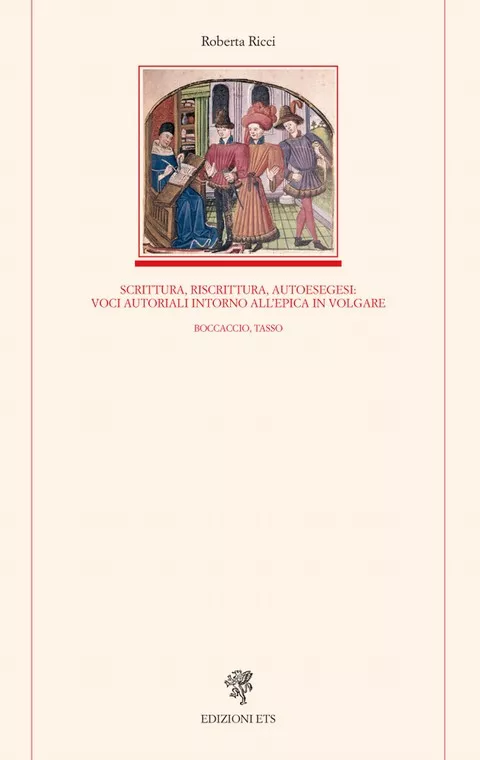First presented in 1940, the award honors Charles Homer Haskins, the noted medieval historian, who was a founder of the Medieval Academy. The award will be announced at the annual meeting of the Academy in the spring of 2016. For her book, Ricci has been awarded national grants (NEH, Renaissance Society of America), as well as fellowships (Bogliasco Foundation) and summer research grants from Bryn Mawr College (Faculty Grant, Center for International Studies).
This study examines the presence and connections of four different literary codes—that of the author who writes, the author who comments his/her own work, of the reader, and of the literary critic—in two poems remarkable for their place within the cultural panorama of early-modern Italian literature: Boccaccio’s Teseida (c.1340–41) and Tasso’s Gerusalemme Liberata (1581). In the history of the epics in Tuscan vernacular, Boccaccio’s public, prolix, and learned glosses written in the third person, on one hand, and Tasso’s private, complex, and ambivalent letters addressed to the intellectuals working at the Vatican, on the other, not only continue to raise philological, chronological, and theoretical issues connected to the genre par excellence, but also open a fruitful line of investigation on the authorial process of artistic invention and on literary self-consciousness.
The book has received a total of five reviews in American and Italian peer reviewed journals: Renaissance Quarterly, Symposium, Rassegna della letteratura italiana, Studi italiani, and Nemla Italian Studies.
